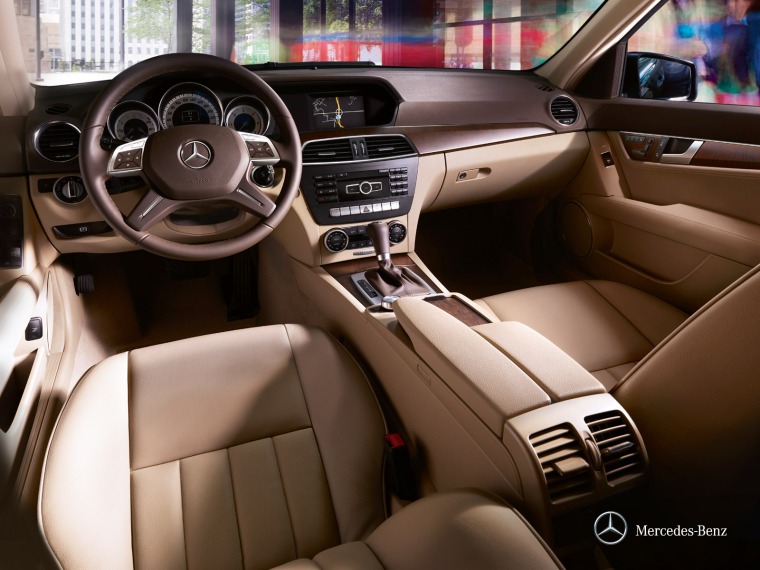The Malaysian automotive industry consists of two low-end manufacturers. To help these manufacturers, the government protects them with massive import duties, sales and other taxes that can jack up the price of an imported car with a large engine by as much as 155%.
In addition to these taxes an Approved Permit (AP) is required to import a car. These can cost around RM30,000 (US$10,000) each.
This makes it a tough country in which to sell foreign cars, especially luxury vehicles. To give you an example, a BMW 3 series that costs approximately £30,000 (RM150,000) in the UK, will cost about RM230,000 (£46,000) in Malaysia.
Top selling luxury cars in Malaysia
The BMW 3 series and the Mercedes C class are the most popular of all luxury vehicles in Malaysia. Sales of the BMW 3 series are around 2,000 units per year and the Mercedes C class slightly higher at 2,200 units. Both these models account for about 40% of each manufacturer’s total annual sales in Malaysia.

So you would expect any dealer that makes a living selling and servicing luxury cars to be on top of their game. Right?
In November and December 2012, a prospect visited a number of luxury auto dealers and had a few test drives. During one test drive, the sales person spent the whole time texting.
On another occasion, at a different showroom he was approached by an executive who began the discussion by arguing about whether a particular vehicle in the showroom was the latest model.
Despite operating in a very competitive space, neither sales executive followed up on the prospect’s visit. However one of them does send ad hoc emails focusing on discounts.
Eventually the prospect asked a friend to refer him to someone at one of the main dealers. He was introduced to a senior Director who referred him to a manager who referred him to an assistant manager. Despite this the prospect purchased a new Mercedes Benz C250 because this dealer offered a larger discount than any of the other dealers.
Even this luxury car dealer who got a referral from a supplier and made a sale with zero marketing investment has done little to build a relationship with the customer, preferring instead to simply sell a car. More on this later.
Selling a luxury product is not like selling a bag of rice
More than any other sector, luxury brands must have people who know how to build relationships with customers. The market for these brands is 0.02% of the Malaysian population. It is not like selling rice, LCD TVs, Computers or Fax machines where volume is the key to success.
Ensuring a luxury purchase requires an investment in time and effort to build a relationship. A one-to-one relationship with a representative that offers individual specific value, exclusivity and personalisation is what customers want.
Levels of service must be exemplary because customers in this space have so much choice and have worked hard for their disposable income.
They want to be seen as special, important and part of a select club and not simply as another anonymous person in an anonymous crowd buying an anonymous product.
In the first month after purchase, our buyer received two or three calls and both times the callers were essentially going through the motions of ticking service and satisfaction boxes.
Since then he has heard nothing. Then last week he received a text message. It is enclosed here, in full.

Pathetic I know. And the cars listed in the text are not cheaper. We’re talking about RM350,000 (£75,000) and upwards!
Now manufacturers, dealers and salesmen are going to say that all that matters is price and discounts but that is only because you cannot be bothered to build relationships with prospects and customers.
So what should this dealer of luxury automobiles do differently? Here are 10 things they need to do and do fast:
1) Recruit the right people and train them not with generic training courses that are used for automotive today and property tomorrow, but with bespoke training relevant to your brand, your industry and your customers.
2) Use technology correctly. Text messages are not a sales tool.
3) Put in place processes and systems that must be adhered to. For instance, if a member of staff has never met a customer before, the relationship must start on a formal footing, at least to begin with. Depending on how the relationship evolves, staff may be allowed to become more familiar.
4) Telling isn’t selling. Appeal to prospect emotions by identifying individual requirements for value and matching your product attributes to those preferences. You don’t sell cars, you realize dreams.
5) Service, service, service. Every interaction with a luxury brand must be of the highest level and expectations must be exceeded every time.
6) Make the experience of dealing with the brand special, unique, glorious but never, ever assume the customer will come back.
7) Too many brands spend a fortune on marketing and then practically ignore the customer. You have a 50% chance of selling to an existing customer and only a 15% chance of selling to a new customer. But sending a poorly written text is not going to retain a customer.
8) Don’t discount.
9) Carry out a sales process audit and sales skills analysis (yes, we can do that for you) and improve the skills of your customer facing staff.
10) Don’t waste time measuring satisfaction. It offers no value.
There is talk of liberalisation of the Malaysian automotive market but the reality is there won’t be any significant changes soon. Luxury brands need to know how to build relationships and realise dreams, not sell cars.
Thanks for the article. Being a Malaysian myself, I acknowledge customer service is not one of our strong point. We are so far behind in terms of customer service compared to our neighbour in Thailand.
I believe giving discount has been ingrained into our culture. Just look at the number of “mega sale” we have in Malaysia throughout the year. But I do agree with your point of not giving discount on luxury product. It kind of ruin the buying experience .
LikeLike
Hi Will
Thanks for taking the time write. One of the reasons the discount culture is ingrained into the Malaysian psyche is because few companies have delivered a quality product and offered high levels of service. As a result Malaysians have become jaded because they are tired of being ripped off.
So they demand a discount everytime they shop. The theory being that if they are ripped off at least they weren’t ripped off so much.
This leads to a viscious spiral because retailers increasingly look for cheaper products to then offer greater discounts to stay competitive. But the products don’t last so long and customers become unhappier and so on. But no company can survive by constantly slashing prices.
But those Malaysian companies that do offer a quality product and offer high levels of service are doing very well. Think British India, Composite Resources, YTL hotels, BRDB and so on.
LikeLike